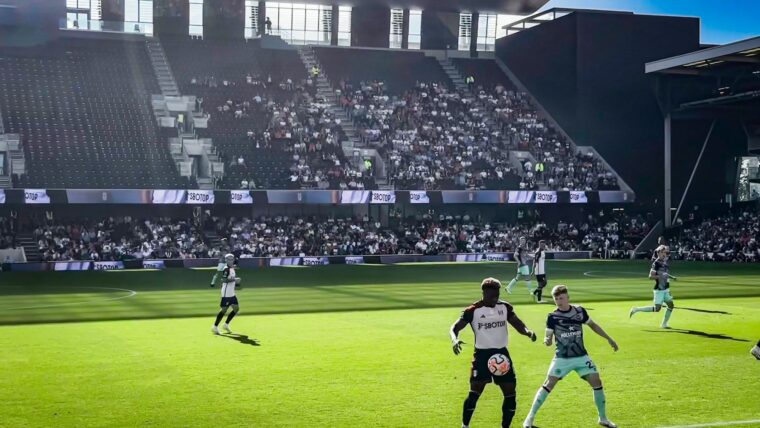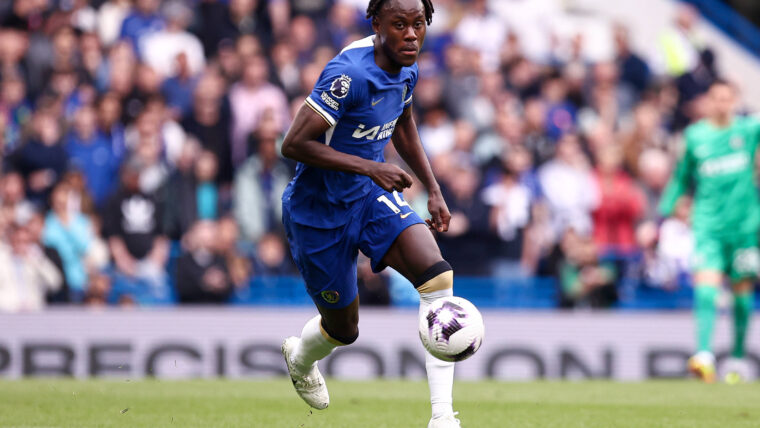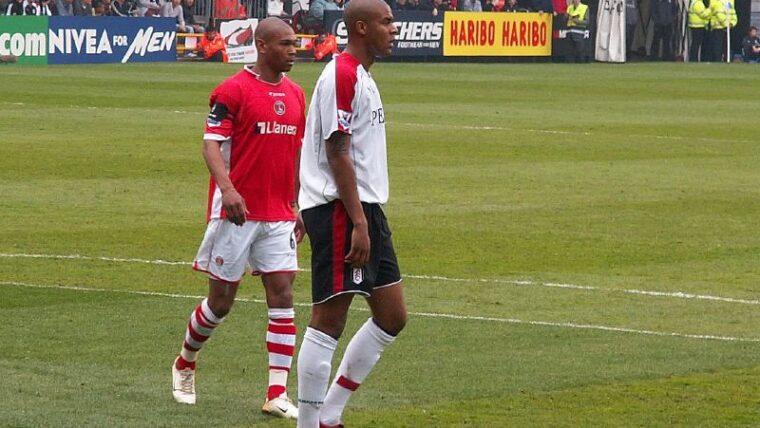Has Fulham benefitted from VAR?
Written by Josh Hallmark on 26th March 2024

Josh Hallmark looks into the numbers to see if how much everyone’s favourite football technology has helped the Whites.
VAR was introduced to the Premier League in 2019 with the aim to give the referees an extra pair of eyes. On paper, the idea has the ingredients to be a success, but, in England, it has been far from it. In fact, more than 20 high-profile errors have been made so far this season. The potential of it seems to have been achieved in other countries, where VAR only intervenes an average of once every three games. In the Premier League, we get this many in a single game.
For Fulham this season, VAR has certainly not gone unnoticed. We have been involved in five overturns – four in our favour – but has VAR done us any good by checking the correct things and making a minimal number of errors?
Error after error
Fulham have had three more goal decisions in our favour compared to goal decisions against us. This doesn’t take into account obvious errors that have been made. So far this season in the Premier League, there have been two incorrect overturns, one wrongly-rejected overturn from the referee at the monitor and 17 interventions missed.
The most memorable error that VAR made against us was against Manchester City. This was the time Nathan Ake headed the ball in the back of the net whilst Akanji was blocking the vision of Leno in an offside position, yet the goal was still given.
More recently in the Carabao Cup final between Chelsea and Liverpool, Van Dijk’s first goal was disallowed for a similar reason in terms of an offside player interfering with play but arguably to a lesser extent. Endo was in an offside position and obstructed Colwill, supposedly giving Van Dijk an advantage to score. This didn’t stop him, however.
Unclear and not obvious
We have benefitted from VAR four times this season. A disallowed goal for United at home, penalty decision ruled out against Villa away, a penalty awarded when we faced Wolves at home, and finally Tete’s goal allowed against Liverpool after an incorrect offside decision. This means that without VAR, we would have two fewer points.
While it may look like we have benefited from VAR, many factors haven’t been taken into account that skew the data. Firstly, as mentioned previously, it doesn’t consider the errors that have been made by VAR. Therefore, the difference in league positions would be considerably different.
Secondly, VAR arguably provides referees with more assurance. With VAR behind their back referees become too reliant on it, thus being more reluctant to make a decision. The problem with this is that VAR will only overturn a decision if a “clear and obvious” error has been made by the official. There is no “clear and obvious” definition of clear and obvious. This means that the actual table without VAR would be very different to the hypothetical table as VAR has an impact on the behaviour and autonomy of the referees.
The third reason is because of the psychological effect it has on the players. In the City game, the controversy arose from their goal that made it 2-1. Having a wrong decision made against you can demotivate a team which has a knock-on effect on the team’s performance for the rest of the game. This contributed to a 5-1 loss. Had the goal been disallowed, it would have been 1-1 and there would have been more hope and potentially, we could have got more in this game. With VAR making errors so often it is better to scrap it as human error made by a referee’s poor judgement are more understandable. There is no ‘correct’ decision and not everyone is ever going to be in an agreement.
Entertainment > accuracy
The league however says that 96% of decisions made are now correct compared to 82% before VAR was introduced in 2019. While this looks like a major improvement, our history-making Carabao cup run this season has reminded us of football without VAR. Watching goals go in and not even having a feeling that it might get ruled out was refreshing. All it took was a glance over at the linesman once it hit the back of the net to see if it was offside or not and there was no waiting long periods of time to see if the goal had been allowed.
It takes an average of 55 seconds per intervention with an average of two-to-three per game. In the Premier League, having VAR in the back of your mind takes the joy out of celebrations. Moments such as Iwobi’s last minute winner against Man United away. This is especially true when a player is through on goal when everyone stops and appeals, such as Lookman’s goal against United in the COVID season. The entertainment of the game is being sacrificed for accuracy. It is as simple as football is more enjoyable to watch without it no matter how many errors it has reduced.
“Fine margins”
Since being introduced, VAR has only led to more confusion regarding rules. It’s unclear if even the referees know what the current handball rule is. The most bewildering moment that led to much controversy was Mario Lemina’s incident against Spurs at home in the 2020/21 season. The ball struck Lemina’s arm while it was completely by his side, which fell kindly for Josh Maja to score the equaliaer that was later ruled out for handball. Since then, an “accidental” handball will no longer be deemed an offence in the build-up to a goal. Also, if a player makes their body “unnaturally bigger” when handling the ball, then they will be penalised. Given these rules, Lemina’s goal would have stood.
Controversy and lack of consistency remains due to the subjectivity of the issue. It’s not just handballs, but offsides too. The powers that be decided to make the lines thicker in order to reduce the precision so that the tiniest of margins won’t rule a player offside. While these have been positive rule changes, they have only been brought about because of VAR and have only caused more uncertainty around the laws of football.
The bottom line
VAR has certainly fallen short of expectations and has instead led to widespread controversy. Since its introduction, it has been at the forefront of complicated rule changes and controversial decision-making. Fulham, among probably all other teams, have been on the receiving end of poor VAR officiating. With or without it, errors are going to exist so there’s no point wasting so much time to come to a conclusion on a subjective issue. VAR is nowhere near perfect and at its current influence, it does not deserve to remain in the Premier League. Football is simply better with its absence.




